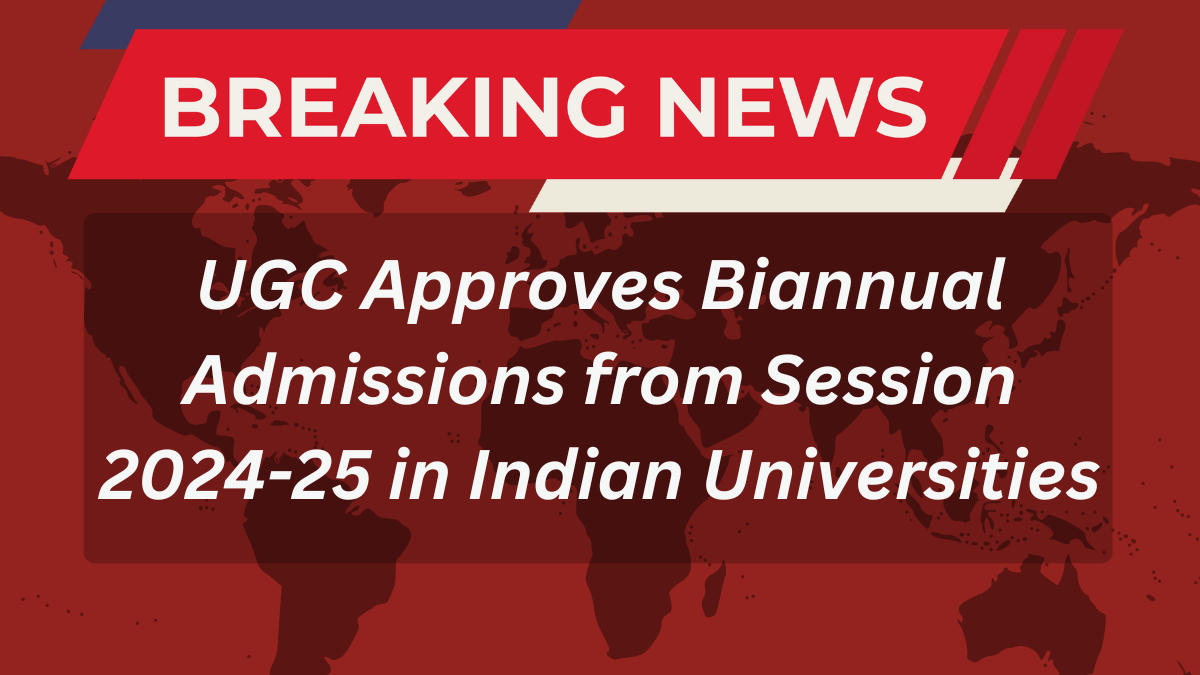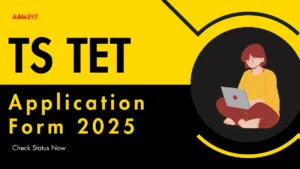Table of Contents
In a groundbreaking move, the University Grants Commission (UGC) has approves Biannual Admissions from Session 2024-25 in Indian Universities. As per UGC Chairmen Tweet, “Commencing from the academic session of 2024-25, Indian universities are allowed to conduct two admission cycles, scheduled for July-August and January-February”. This policy overhaul aims to enhance accessibility and flexibility for students seeking admission into undergraduate and postgraduate programs across the country.

UGC Approves Biannual Admissions from Session 2024-25 in Indian Universities
Under the new framework, Indian universities, Colleges will conduct admissions twice a year: from July to August and from January to February for Academic Session 2024-25. This Biannual admission system aims to accommodate students who missed the initial intake and streamline the admission process throughout the academic year 2024-25.
UGC Chief, Kumar, highlighted that the biannual admissions will optimize resource allocation within higher education institutions. This strategic approach is expected to improve the quality of education and research, thereby enhancing graduates’ employment prospects.
Benefits for Students in UGC Dual Admission
The decision to introduce biannual admissions is expected to benefit a wide spectrum of students, including those who faced challenges securing admission during the traditional July-August intake period. UGC Chairman emphasized that this change will particularly aid students affected by delayed board results, health issues, or personal circumstances.
- Increased Flexibility: Students who miss the traditional July-August admission window due to delayed board results, health concerns, or personal reasons can now apply in the January-February cycle.
- Reduced Waiting Time: This new system eliminates the need to wait a whole year for the next admission cycle, allowing students to pursue their academic goals promptly.
- Improved Motivation: By offering a second chance, biannual admissions can help students stay motivated in their academic journey.
Benefits for Universities in Biannual Admissions
- Optimized Resource Allocation: Spreading out the admission process allows universities to better manage faculty, infrastructure, and other resources across both semesters.
- Enhanced Employability: Increased graduate output due to biannual admissions could potentially lead to a larger pool of qualified graduates meeting industry demands.
What’s Next ?
While adopting biannual admissions is not mandatory, institutions with adequate infrastructure and faculty can capitalize on this opportunity to expand their student intake and introduce innovative programs in emerging fields. UGC Chief Kumar emphasized the importance of proactive planning, administrative readiness, and seamless support mechanisms to ensure a smooth transition for students admitted at different times of the year. To ensure the successful implementation of this new admission system, universities are encouraged to strategically mobilize their resources, including faculty, infrastructure, and student support services.
Conclusion
The UGC’s approval of biannual admissions from 2024-25 signifies a monumental shift in India’s higher education landscape. The UGC’s decision to introduce biannual admissions has the potential to make the Indian higher education system more inclusive and student-centric.




 Last Minute Preparation Tips for MP TET ...
Last Minute Preparation Tips for MP TET ...
 TS TET Application Form 2025 Out, Direct...
TS TET Application Form 2025 Out, Direct...
 Preparation Strategy to Crack DBT BET 20...
Preparation Strategy to Crack DBT BET 20...














